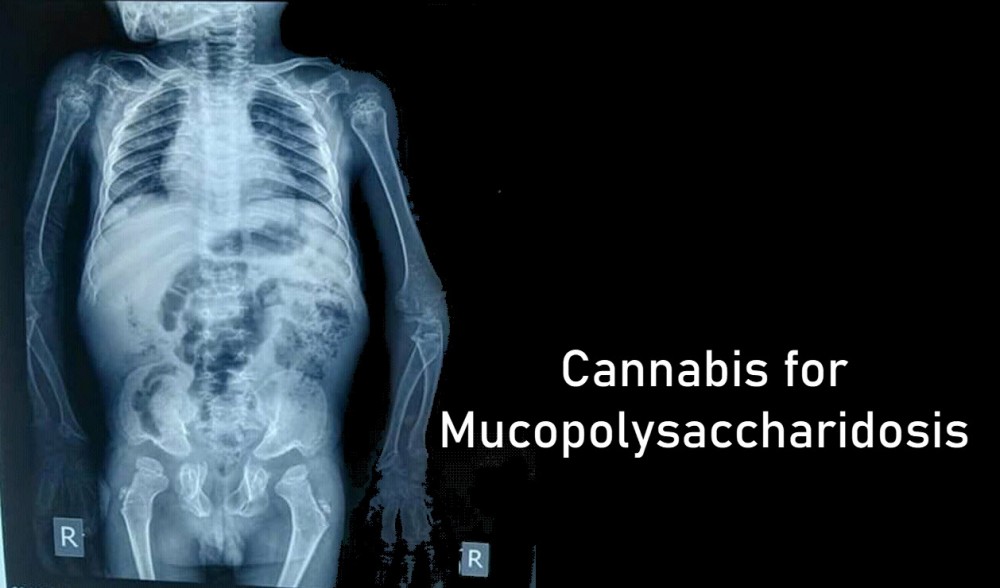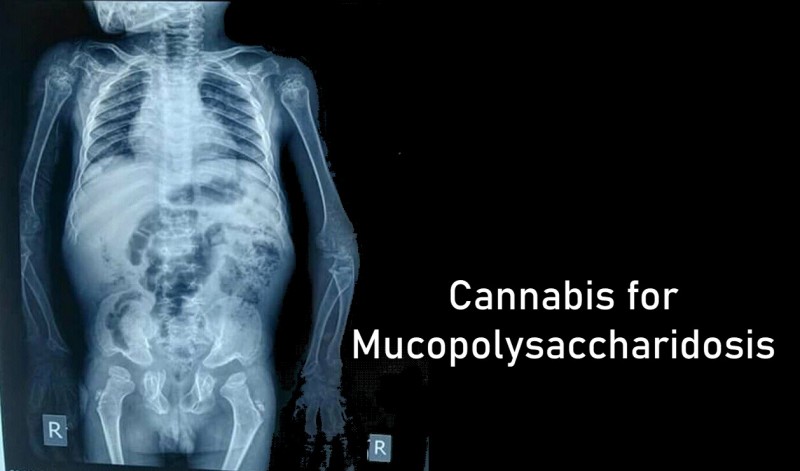Cannabis For Mucopolysaccharidosis

Now here is a mouthful for those who know nothing about this disorder. Nobody wants to receive a diagnosis of a disease that entails severe health conditions. None alone if a disease has a name that is hard to remember. Something like mucopolysaccharidosis is specifically bad, as it causes a range of symptoms and other problems. It furthermore has not many treatment options available, but cannabis can bring relief and serves as a great alternative treatment method.
What is Mucopolysaccharidosis?
Mucopolysaccharidosis, or MPS, is one type of lysosomal storage disorder. It is a group of inherited disorders where the body struggles to break down chains of sugar molecules called mucopolysaccharides. Because it cannot be broken down, it starts building up in the blood, cells, and connective tissues that ultimately leads to various health problems.
Mucopolysaccharides are also known as Glycosaminoglycans or GAGs. They are long chains of sugar molecules that are essential for building bones, cartilage, skin, tendons, and other tissues of the body. The body constantly breaks down mucopolysaccharides and builds it up again. There are many enzymes involved in breaking down each mucopolysaccharide. A deficiency or absence of any of these essential enzymes cause the GAG not to be broken down completely and results in a build-up in the tissues and organs in the body.
Several inherited diseases are caused because of the build-up of mucopolysaccharides. This makes it hard to identify the type of mucopolysaccharidosis a person has. The specific lack of enzyme has to be identified to find the correct treatment.
Different Types of Mucopolysaccharidosis
There are 7 different types of Mucopolysaccharidosis. We will briefly touch them.
Mucopolysaccharidosis Type 1
The classification of the type of MPS a person has depends on the severity of the symptoms. There are 3 main types under MPS Type 1.
Hurler Syndrome (MPS 1-H) – this is the most severe type of MPS. It is a progressive condition that affects multiple organs and tissues and can cause early childhood death.
Scheie Syndrome (MPS-1-S) – this is the mildest form of MPS. It normally appears around the age of 5 but is diagnosed after the age of 10.
Hurler-Scheie Syndrome (MPS 1H/S) – this is an intermediate clinical phenotype. The disorder flips between severe and mild.
In MPS Type 1, there is a deficiency of alpha-I-iduronidase (a glycoprotein enzyme found in the lysosomes of cells). A clinical distinguishing process defines the type of MPS Type 1 disease a person is suffering from.
Mucopolysaccharidosis Type 2
Hunter syndrome, or MPS Type 2, is the only MPS syndrome with X-linked inheritance. It can only occur in boys.
Other Types of MPS
Sanfilippo Syndrome – This is also called MPS 3 and 4 separate enzyme deficiencies differentiate 4 subtypes. These enzyme deficiencies cause heparan sulfate degradation. It is a severe central nervous system disease that leads to progressive neurocognitive deterioration.
Morquio Syndrome – MPS 4 develops because of a defective degradation of structural carbohydrates in the cartilage, cornea, and bone due to a deficiency in beta-galactosidase.
Maroteaux-Lamy Syndrome – MPS 6 is caused by a deficiency of the enzyme arylsulfatase B that leads to the build-up of a dermatan sulfate mostly found in the skin.
Sly Syndrome, or MPS 7 – develops because of a beta-glucuronidase deficiency. It also leads to a lack of dermatan sulfate, heparan sulfate, and chondroitin sulfate. It is normally present in the cartilage.
What are the Symptoms?
The symptoms depend very much on the type of MPS you have. Some of the symptoms for MPS type 1 include:
Enlarged vocal cords leading to a deep voice
Enlarged lips, head, tongue, cheeks, and nose
An inguinal hernia
An umbilical hernia
Sleep apnea
Enlarged spleen and liver
Hydrocephalus
Carpal tunnel syndrome
Frequent upper respiratory infections
Recurrent ear infections
Joint deformities
Short stature
Heart valve abnormalities
How can Cannabis be Effective in treating MPS
Pain and considerable discomfort are noticeable symptoms of people suffering from MPS. Opioids are mostly used in the traditional sense of treatment. But these types of opioids have many side-effects. Medical marijuana shows efficacy in treating chronic pain. Cannabis helps to treat symptoms related to nausea. Severe nausea keeps cells from fulfilling their essential functions like proper digestion, appetite responses, and basic functionality.
The cannabinoids of the cannabis plant work effectively with the endocannabinoids where a variety of enzymatic pathways form patterns in the brain. When these pathways get disturbed, they lead to many different complications. Cannabis can help the body to restore this imbalance.






